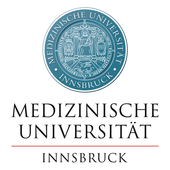Tyrolian algae extract with anti-inflammatory potential
Keywords
Algae extract, ointment, skin, natural product, photo-protective, antiinflammatory, phyto-pharmaceutic and cosmetic composition
Invention Novelty
Glucocorticoids are usually used in the treatment of various skin conditions and diseases which cause damaging inflammatory reactions. While these compounds represent a significant milestone in dermatologic therapy through their beneficial effects in reducing inflammation, they show negative side effects such as skin atrophy, striae, rosacea, perioral dermatitis, acne, and purpura. Especially when used in children and persons with sensitive skin.
It was surprisingly found that extracts obtained from soil microorganisms, especially soil algae from the alps, have anti-inflammatory properties. Such extracts can be used in the prophylaxis and treatment of inflammations or inflammatory diseases, especially of the skin, without any major side effects as seen with glucocorticoids.
Value Proposition
The invention provides an anti-inflammatory extract of alpine soil algae and a fraction thereof, wherein the algae comprise Chlorophyta or Xanthophyceae. Alpine soil algae are of special interest for the production of secondary metabolites with photo-protective and anti-inflammatory properties due to their exposure to extreme environmental conditions including high levels of UV radiation. The extract or fraction thereof may be beneficial in pharmaceutical compositions as well as cosmetic compositions and food or drink supplements.
Technology Description
A number of algae strains from a unique algae collection were screened for their potential to produce metabolites with anti-inflammatory activities. The inflammatory response has been induced in a newly generated NF-κB reporter cell line (human keratinocyte HaCaT) and treated with selected soil algae extracts. Several extracts had a pronounced inhibitory effect on the reporter activity. Validation was carried out using dose response experiments to verify the dose dependency of soil algae metabolites.
Extract originating from the algae strain Chromochloris zofingiensis cultivated under the specifically administered stress condition was generated. The extract was not cytotoxic as shown by LDH-release and Resazurin assays while significantly reducing the release of various pro-inflammatory cytokines in human epidermis equivalents. A bioactivity guided fractionation was performed and only fraction N8 showed inhibition of NF-κB activation. Mass spectrometry analysis identified 5 leading metabolites in fraction N8: Diacylglyceryl-N,N,N-trimethylhomo-Serine (DGTS), Lyso-DGTS, p-coumaric acid, Oleamide and Theophyllin.
Commercial Opportunity
The algae extract and the fraction thereof offers a valuable product opportunity as anti-inflammatory ointment for topical application, but also usable as capsule or tablet in a systemic application. The technology is open for licensing, further pre-clinical and clinical co-development is highly welcomed.
Development Status
Fraction N8 with the leading metabolites is the smallest unit an anti-inflammatory effect could be shown for. Treatment with extract or fraction N8 revealed the inhibition of TNFα-induced IκBα degradation and ERK1/2 phosphorylation and activation of NF-κB downstream of TAK1 thus interfering directly with the IKK complex activity. Fraction N8 or the parent extract can be developed as a phytotherapeutic product to treat skin diseases and other inflammatory disorders.
Patent Situation
Patents are pending in US and EP with priority of June 18, 2021.





